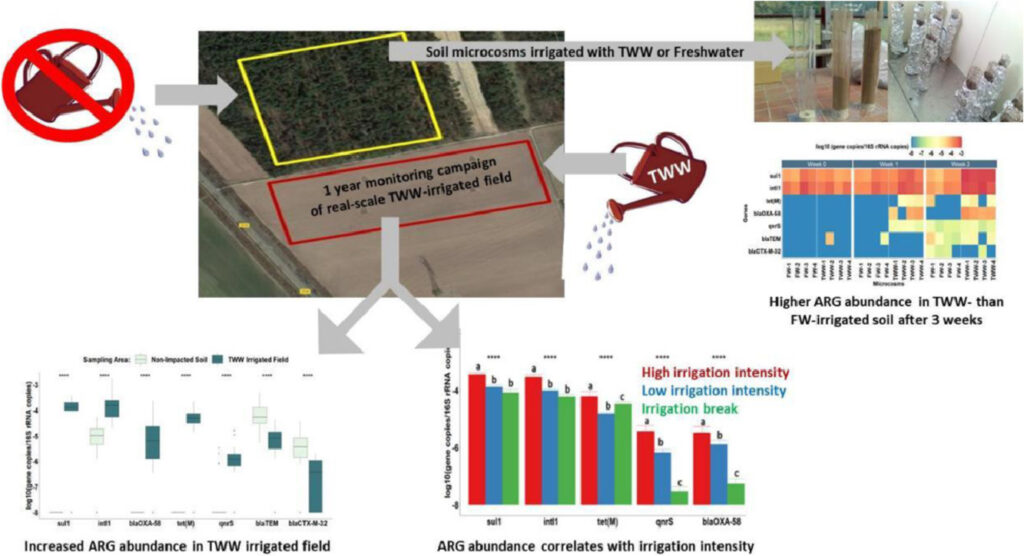January digest features a novel type of colistin resistance genes, effect of exogenic antimicrobials on natural microbiota, in silico prediction of antimicrobial resistance, Micro-combat game, and more. Check out our selection of free web-based AMR seminars &c. Enjoy!
Global
Global Antibiotic Consumption in Humans, 2000 to 2018: A Spatial Modelling Study – Annie J. Browne – SSRN preprint
*GRAMProject study estimating global antibiotic consumption in 204 countries from 2000-2018
Both high rates of antibiotic consumption and a lack of access to antibiotics identified!
Polarization of microbial communities between competitive and cooperative metabolism – Daniel Machado – Nature Ecology & Evolution
*Global microbiome analysis revealed stark polarisation between competitive and cooperative communities. Competitive groups harbour more antimicrobial potential, but cooperative ones are more abundant and occupy diverse habitats.
Perspective: Proximate and ultimate causes of the bactericidal action of antibiotics – Fernando Baquero and Bruce R. Levin – Nature Reviews Microbiology
Carbapenem and Colistin Resistance in Enterobacter: Determinants and Clones – Zhiyong Zong – Trends in Microbiology
Natural habitats
Antimicrobial-specific response from resistance gene carriers studied in a natural, highly diverse microbiome – Wisnu Adi Wicaksono – Microbiome
*After exposure of lichen to a range of antimicrobials, antimicrobial-specific shifts in the lichen bacterial community structure observed!
Water environment
Review: Antimicrobial Resistance and Bacteriophages: An Overlooked Intersection in Water Disinfection – Ana Carolina Maganha de Almeida Kumlien – Trends in Microbiology
The microbiome of a polluted urban lake harbors pathogens with diverse antimicrobial resistance and virulence genes – Jorge Quillaguamán – Environmental Pollution
Microbial retention and resistances in stormwater quality improvement devices treating road runoff – Renato Liguori – bioRxiv
Annual dynamics of antimicrobials and resistance determinants in flocculent and aerobic granular sludge treatment systems – Rebeca Pallares-Vega – Water Research
Metagenomics analysis of bacteriophages and antimicrobial resistance from global urban sewage – Josephine E. S. Strange – Scientific Reports
Antibiotic resistance gene load and irrigation intensity determine the impact of wastewater irrigation on antimicrobial resistance in the soil microbiome – Ioannis D.Kampouris – Water Research
*Antibiotic resistance gene load and irrigation intensity determine the impact of wastewater irrigation on AMR in the soil microbiome.

Soil environment
Cross-comparison of methods for quantifying antibiotic resistance in agricultural soils amended with dairy manure and compost – Lauren Wind – Science of The Total Environment
Hospital environment
Antimicrobial resistance determinants are associated with Staphylococcus aureus bacteraemia and adaptation to the hospital environment: a bacterial genome-wide association study – Bernadette C Young – medRxiv
Mode and dynamics of vanA-type vancomycin resistance dissemination in Dutch hospitals – Sergio Arredondo-Alonso – Genome Medicine
Animal experiments
Vancomycin-Induced Changes in Host Immunity and Behavior: Comparative Genomic and Metagenomic Analysis in C57BL/6 and BALB/c Mice – Pratikshya Ray – Digestive Diseases and Sciences
Techniques
Antibiotic Efficacy Testing in an Ex vivo Model of Pseudomonas aeruginosa and Staphylococcus aureus Biofilms in the Cystic Fibrosis Lung – Niamh E. Harrington – Immunology and Infection
Bioinformatics
A novel type of colistin resistance genes selected from random sequence space – Michael Knopp – Plos Genetics
*Random sequences can encode proteins with beneficial functions. Encoded peptides are highly hydrophobic. Dcr are a novel class of resistance genes for last resort antibiotic Colistin.
Read more: Perspective: Harder, better, faster, stronger: Colistin resistance mechanisms in Escherichia coli – Axel B. Janssen and Willem van Schaik – Plos Genetics
Identifying novel β-lactamase substrate activity through in silico prediction of antimicrobial resistance – Kara K. Tsang – Microbial Genomics
*Even simple machine learning (in combination with follow-up experiments) can be used to identify previously undiscovered antimicrobial resistance gene activity!
Mobilization of antibiotic resistance genes differ by resistance mechanism – Tue Kjaergaard Nielsen – bioRxiv
A framework for identifying the recent origins of mobile antibiotic resistance genes – Stefan Ebmeyer – Communications Biology
Read more: Behind the paper
Webinars &c
13th JPIAMR joint call – live Q&A and presentations: One Health interventions to prevent or reduce the development and transmission of AMR – JPIAMR – 28 January 2021/
Recorded webinar will be available here
Antimicrobial Chemotherapy Virtual Conference 2021 – GARDP and the British Society for Antimicrobial Chemotherapy – 2- 3 February 2021
If patients had antibiotic treatment options, how would they choose? A trade-off between antibiotic resistance and cost – Uppsala Antibiotic Center & Mirko Ancillotti – 5 February 2021
EU-JAMRAI Final Conference – EU-JAMRAI – 11-12 February 2021
The 2nd International Symposium on Anti-microbial resistance “Man vs Microbe: AMR—The Race of the Century” – Amrita School of Biotechnology & CHARM UC San Diego – 24-26 February 2021
Managing Antimicrobial Resistance through Behaviour Change – The Uppsala Health Summit – 15-18 March 2021
What’s up with MALDI—TOF mass spectrometry in microbiology? – Luxembourg Institute of Science & Technology – 15-16 April 2021
Courses
TARGET Antibiotics – Prescribing in Primary Care – British Society for Antimicrobial Chemotherapy & TARGET
Helping primary care professionals to target the use of antibiotics to reduce antimicrobial resistance
Podcast
December 2020 Pod: Christmas theme – Bengtsson-Palme Lab – Microbiology Lab Pod
Fun
Micro-combat – European Joint Action on Antimicrobial Resistance and Healthcare-Associated Infections & Barcelona Institute for Global Health
*A card game where viruses, bacteria, fungi and parasites threaten the health of citizens and you can only save them working as a team!